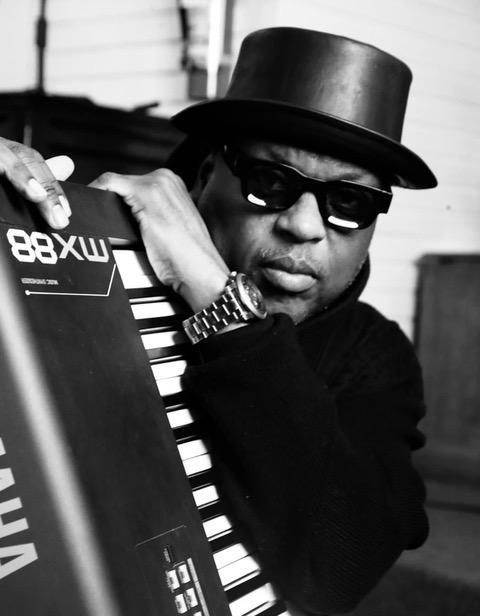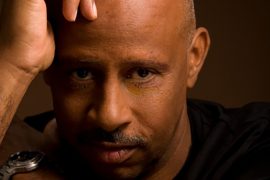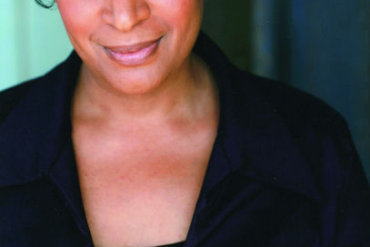Used with permission by Desirae L. Benson (Sheen Magazine)
Watching a show and being completely drawn into a scene because of the mesmerizing music is something millions of people around the world can relate to. Well, in the realm where music meets storytelling, there exists a maestro whose compositions breathe life into the narratives we hold dear. Robert Morrison, affectionately known as Rob “Diggy” Morrison, is the extraordinary composer behind the captivating scores of the BET hit series, “The Family Business.” With Season 5 on the horizon, Rob is poised to once again mesmerize audiences with his extraordinary musical prowess, building upon the tremendous success of his spellbinding work in Season 4.
To put his talent into perspective, Rob’s musical alchemy consists of a strong combination of artistry and intuition that elevates the on-screen drama to new heights. For decades, his ability to craft immersive and suspenseful scores has made him a highly sought-after talent in the realm of film and television. Through his music, Rob has the power to evoke emotions, heighten tension, and transport viewers into the heart of the story.
As a true visionary in his field, Rob Diggy Morrison approaches his craft with a keen eye for detail and an authentic commitment to originality. His dedication to pushing boundaries and thinking outside the box is evident in every note he composes. As he embarks on this new season of “The Family Business,” Rob’s goal remains clear—to provide the audience with a unique and unforgettable auditory experience that will linger in their minds long after the credits roll.
In a recent interview with the masterful composer, Sheen Magazine had a chance to delve a little deeper into the inner workings of what life is like for him as someone who essentially drives the mood and tone of a series. During our discussion, he did not hold back and spoke with full transparency. With each score being unique from the next, Rob invites us to join him on a lyrical adventure where soundscapes come alive, emotions run deep, and the magic of storytelling unfolds in perfect harmony.
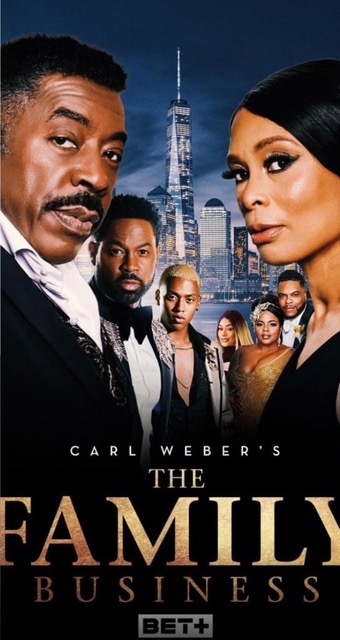
Desirae L. Benson: Can you tell us about your experience working on The Family Business series and what drew you to this project?
Rob Diggy Morrison: Working as a composer on the show has truly transformed my life. It’s an incredible feeling to be immersed in the world of scoring for a major network like BET, knowing that for at least three months, my days are dedicated to crafting music for the screen.
Each day, I delve into the intricacies of every scene, absorbing the nuances of the characters and sometimes even crafting themes that allow viewers to deeply connect with them, whether they’re heroes or villains. Of course, there are moments when I hit a creative wall, experiencing what we call writers block. During those times, I’ve learned the importance of stepping away from the computer for a while, taking a bike ride, or simply giving myself some rest to recharge. “The Family Business” holds a special place in my heart, not only because of its captivating storyline but also because it features some familiar faces.
Knowing that personal friends like Trisha L. Mann-Grant and Carl Gilliard are part of the cast adds an extra layer of connection for me. Additionally, having crossed paths with various actors from the LA area or collaborated with them on other projects further strengthens that bond. However, what truly makes “The Family Business” feel like a family affair is the presence of Stan Shaw, who portrays Larry Duncan. Discovering that he hails from Chicago, particularly the west side, and attended the same high school as me, John Marshall High School—creates a unique sense of kinship and nostalgia, he’s also a personal friend.
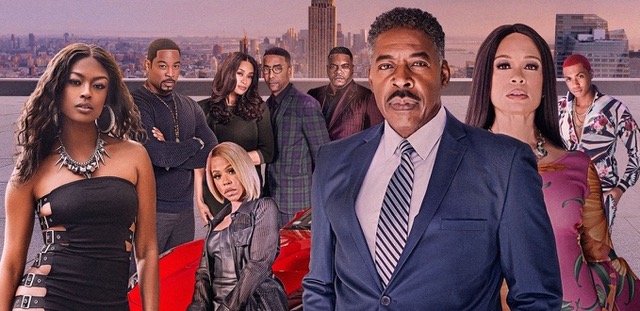
How do you approach composing music for a suspenseful and immersive show like The Family Business?
When tackling the composition of music for a show like “The Family Business” or any film project or television series, I embark on a multifaceted approach. I delve deeply into the narrative, characters, and overall tone of the entire production to grasp its essence clearly.
As a composer, I understand the importance of having the right sounds or plugins in my Digital Audio Workstation (DAW). These tools serve as the paint and brushes in my creative arsenal, assisting me while I craft the listening experience.
Once equipped with the necessary sonic resources, I carefully analyze the scenes that require suspenseful music. This involves deciphering the pacing, dynamics, and emotional intricacies to determine the most effective musical motifs, instrumentation, and tonalities. This takes some time.
Collaboration is integral to my process. I work closely with directors, producers, and other key stakeholders to get their insights and vision for the project. Their feedback guides my compositions, ensuring alignment with the narrative and enhancing the creativity of my work. Furthermore, I embrace experimentation within my compositions. I explore a variety of musical techniques, from dissonant harmonies to unconventional instrumentation, to instill tension and intrigue into the score. Ultimately, my approach revolves around a synthesis of storytelling comprehension, collaboration, and creative exploration.
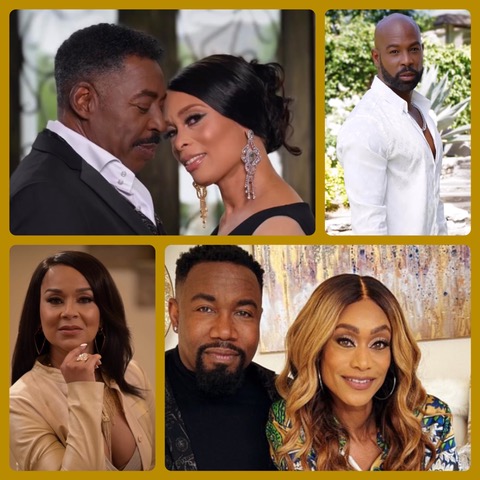
In what ways do the characters in the series influence your musical compositions?
The characters serve as sources of inspiration and guiding lights for me. Some characters have a magnetic pull that sparks my creativity and keeps me inspired. Their personality, struggles, and triumphs directly shape the music I create. When I connect with a character, their essence becomes a driving force in my creative process. Their traits and storylines inform the melodies and themes I develop, adding depth to their portrayal on screen.
For example, a determined hero might inspire bold, anthemic melodies, while a conflicted character could evoke haunting, mysterious harmonies. On the other hand, antagonists or complex characters may inspire darker, more intense compositions, filled with tension and uncertainty. Each character has a unique vibe that influences the mood and style of my music, shaping the overall tone of the series.
Additionally, the relationships between characters affect the pacing and intensity of my compositions. Moments of conflict or resolution, friendship, or betrayal, are reflected in the flow and emotion of the music, which further enhances it all. Ultimately, the characters in the series serve as both muses and guides, helping me create music that resonates with the audience and enriches the storytelling.
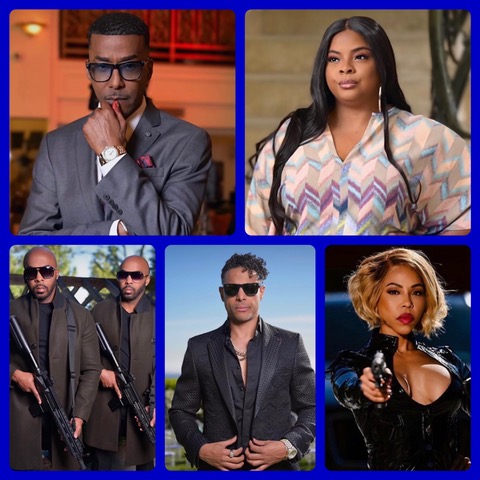
How do you ensure your musical scores enhance the storytelling and engage the audience?
Ensuring that my musical scores enhance storytelling and captivate the audience involves a blend of intuition, craftsmanship, and the right sonic elements. Central to this process is my focus on sound and tonality—what resonates, what feels right, and what evokes a visceral response in both myself and the viewers.
My approach begins with selecting the appropriate sound libraries and plugins, which serve as the foundation for crafting the production’s sonic landscape. With the right tools, I can evoke a wide range of emotions and atmospheres, from tension-filled suspense to heart-pounding excitement.
I pay close attention to how the music aligns with the narrative beats and character arcs, ensuring that each composition enhances the emotional depth and momentum of the story. Whether it’s building anticipation during a suspenseful scene or heightening the drama of a pivotal moment, the music is meticulously crafted to complement and elevate the storytelling.
Drawing from my own experiences and instincts, I aim to create music that taps into the audiences’ emotions and enhances their immersion in the narrative. Just like the iconic score of “Jaws”—a movie that pulls viewers into its gripping tale…I strive to create musical scores that leave a lasting impact, drawing the audience deeper into the story with each note.
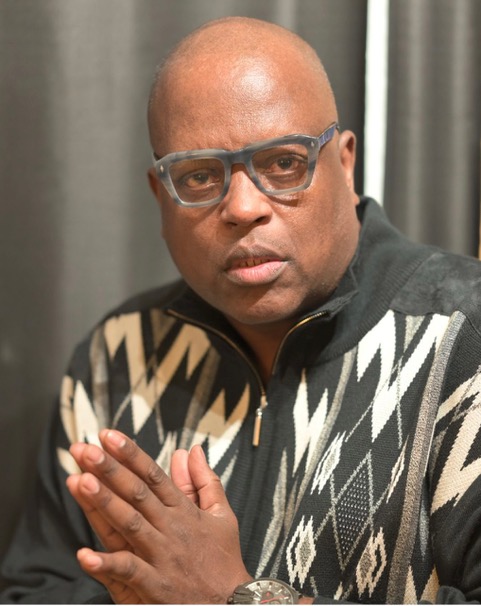
Walk us through your collaboration process with the producers and directors to create the perfect musical atmosphere for each scene.
Virtual meetings via platforms like Zoom or via conference calls, allow us to convene for a thorough “spotting session.” During this session, we meticulously comb through the scenes, noting precisely where musical cues are to be integrated. Alongside the producers and directors, the Music Supervisor often joins the discussion, leveraging their expertise to enhance the musical narrative in alignment with the script. This collaboration serves as the foundation for crafting a score that elevates the cinematic experience, with each participant contributing insights to sculpt the perfect musical landscape for every scene.
What role does technology play in your music composing process, and how has it evolved over the years?
Technology plays a pivotal role in my music composing process. It serves as the facilitator and enabler of my creativity. Over the years, it has evolved significantly, revolutionizing the way I approach composition and production. Initially, technology provided me with the tools to translate musical ideas into tangible compositions more efficiently. Digital Audio Workstations (DAWs), virtual instruments, and sample libraries opened up a vast array of sounds and textures, expanding the sonic palette available at my fingertips. This allowed me to experiment with different musical elements, arrangements, and production techniques with greater ease and flexibility. Advancements in music production hardware, such as high-performance computers, audio interfaces, and studio monitors, have elevated the quality and fidelity of my productions, enabling me to achieve professional-grade results within the confines of my own studio.
Overall, technology has been instrumental in shaping the way I approach music composition, production, and collaboration. Its evolution has not only enhanced my workflow efficiency and creative capabilities but has also democratized access to music production tools, empowering aspiring composers, and musicians to realize their artistic vision with unprecedented ease and accessibility.
As a tech-savvy composer, what software or tools do you rely on to bring your musical vision to life?
I rely on a variety of software and tools to bring my musical vision to life, but my primary choice is Apple Logic Pro X. Its intuitive interface, extensive library of virtual instruments and effects, and MIDI sequencing capabilities allow me to create professional-quality compositions. Additionally, Logic Pro X seamlessly integrates with other software and hardware, further enhancing my workflow and productivity.
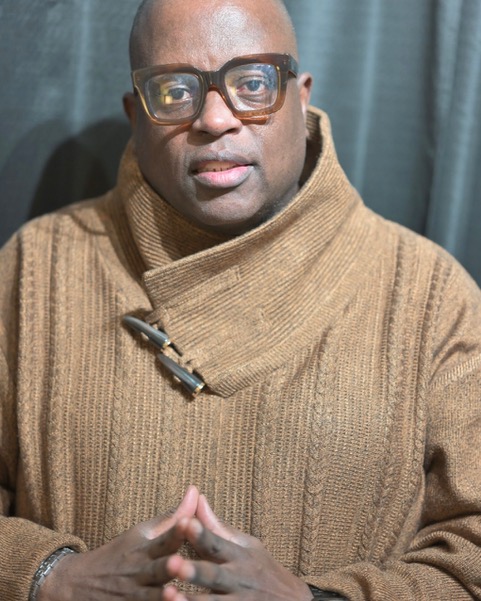
How do you balance staying true to your signature style while also adapting to the changing demands of the narrative for the show?
It is a delicate dance that involves several key elements. First and foremost, my familiarity with the show, the characters, and the dynamics of the narrative allows me to establish a strong foundation rooted in the essence of the story. Building on this connection, my collaboration with the director further solidifies my understanding of their vision and preferences.
My signature style is characterized by a blend of electronic elements and live instruments, such as acoustic and electric guitar, and horns, which I’ve honed through years of experience and exploration. This fusion of different musical influences enables me to create a unique sonic identity that blends with the show’s themes and atmosphere. With this in mind, I can ensure that my music remains authentic, compelling, and aligned with the evolving narrative of the show.
What challenges have you faced as a composer, and how have you overcome them to deliver exceptional musical scores?
As a composer, I’ve encountered various challenges throughout my career, but each one has presented an opportunity for growth. One recurring challenge is writer’s block, which can stall creativity and progress. I try to maintain a disciplined approach to my work, staying committed to my routine and seek inspiration from different sources. I make sure to rest my mind and recharge. Other challenges I’ve faced are related to technical issues, such as hard drive crashes or data loss. It can be frustrating, but I have learned to remain calm and composed under pressure. I also maintain regular backups of my work, so I mitigate the risk of data loss and ensure continuity in my workflow. In instances where data loss does occur, I approach the situation with a problem-solving mindset, exploring alternative solutions and leveraging my technical expertise to recover or recreate lost material.
One notable example of overcoming adversity occurred during the production of season 4, where I experienced a significant setback in the form of an entire lost session for episode 4. Rather than panicking, I remained composed and focused on finding a solution. I devised a plan to recreate the score without the director’s knowledge, ensuring that the project remained on track and that the quality of the music was not compromised. No matter what, I ensure that I deliver exceptional musical scores that exceed expectations, regardless of the obstacles encountered along the way.
In what ways do you incorporate feedback from viewers and critics into your music composing process?
Staying true to my artistic vision is crucial as a film composer. While feedback from viewers and critics can offer valuable insights, it’s essential to remember that not all feedback will align with my creative vision or goals for the project. Not all feedback will be relevant or constructive, so focus on the feedback that helps you enhance your work without compromising your artistic integrity. I always trust in my abilities and the creative decisions I’ve made. Ultimately, the goal of your music is to enhance the overall cinematic experience for the audience. While opinions can be influential, it’s the audience and their reaction to my music that truly matters. By balancing feedback and staying true to my artistic vision, I can continue to create music that resonates with audiences while maintaining my authenticity as a composer.
Looking ahead to Season 5, what can audiences expect from your musical talents in The Family Business, and how do you plan to top your previous work in Season 4?
Being the main composer, I understand the importance of pushing creative boundaries to keep up with the high standards set by network TV. Reflecting on my previous work in Season 4, I acknowledge the successes and areas for improvement, using them as inspiration for Season 5. In this upcoming season, I plan to elevate the score with a fresh approach, incorporating elements of trap music to add depth and excitement. By infusing the soundtrack with 808s and a more trap-driven sound, I aim to create a dynamic and contemporary vibe that resonates with viewers.
Additionally, my heightened awareness of camera angles and narrative dynamics allows me to enhance the drama and emotion through music, drawing viewers deeper into the world of “The Family Business.” Overall, Season 5 promises to deliver a musical experience that pushes boundaries and captivates audiences. I am confident that the music of this season will leave a lasting impression on fans of the show.
Can you share an experience with us where you felt the most successful in your chosen field and why?
One of the most fulfilling moments in my career came when I composed a theme song for my fraternity, Kappa Kappa Psi, a National Honorary Band Fraternity. This experience was particularly meaningful as the song I wrote was transcribed by the late, great Gerome Hudson, a highly respected figure and assistant band director in the music community at the University of Arkansas at Pine Bluff. Seeing my composition come to life as it was performed by the university marching band during football games was an immensely proud moment for me. To witness my music resonating with others and being embraced by such a talented group of musicians, including my frat brothers, was incredibly gratifying. This achievement holds special significance as it occurred during a time when I wasn’t recognized until after I graduated. It serves as a reminder of the importance of perseverance, passion, and the unwavering support of loved ones like my mother, Joanne. Reflecting on this experience fills me with a sense of pride and gratitude, especially considering my subsequent induction into the Hall of Fame in the field of Media and Entertainment. It reaffirms my belief in the power of music to connect, inspire, and leave a lasting impact on both individuals and communities. I love you, mama, Joanne.
Rob “Diggy” Morrison’s musical genius is not only integral to the success of “The Family Business” but it is also a testament to his artistry and dedication to his craft. Through his evocative compositions, Rob has elevated the storytelling of the series to new heights, captivating audiences with his unique blend of emotion, tension, and downright brilliance. As we anticipate the upcoming season, one thing is certain: Rob Diggy Morrison’s melodies will continue to excite us, and eagerly keep us on the edge of our seats anticipating what is next.
To learn more, follow Rob and his work on his socials:


